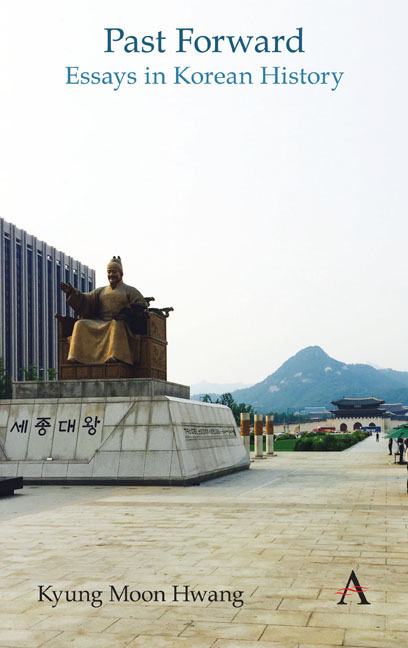Book contents
- Frontmatter
- Contents
- List of Figures
- Foreword
- Chronologies of Korean History
- Themes
- Acknowledgments
- Note on Romanization and Spelling
- Part I Circulating History
- Part II Durable Traditions
- Part III Ancient Remains
- Part IV Dynastic Depths
- Part V Modern Origins
- Part VI Challenges of Nationhood
- 30 Korea's Past in Light of Brexit
- 31 Openness and Exclusion
- 32 The North Korean View of History
- 33 Another Way to View National Division
- 34 The First National Assembly Elections
- 35 Who Started the Korean War?
- 36 Textbooks and Competing Nationalist Histories
- 37 The Complexities of Memorial Day
- 38 Adoption's Spotlight on Korean History
- 39 Questioning Monuments
- 40 Taking Ownership of the Past
- Part VII History Makers
- Part VIII External Presences
- Part IX Trials of Modernization
- Part X Gripped by the Past
- Index
30 - Korea's Past in Light of Brexit
from Part VI - Challenges of Nationhood
- Frontmatter
- Contents
- List of Figures
- Foreword
- Chronologies of Korean History
- Themes
- Acknowledgments
- Note on Romanization and Spelling
- Part I Circulating History
- Part II Durable Traditions
- Part III Ancient Remains
- Part IV Dynastic Depths
- Part V Modern Origins
- Part VI Challenges of Nationhood
- 30 Korea's Past in Light of Brexit
- 31 Openness and Exclusion
- 32 The North Korean View of History
- 33 Another Way to View National Division
- 34 The First National Assembly Elections
- 35 Who Started the Korean War?
- 36 Textbooks and Competing Nationalist Histories
- 37 The Complexities of Memorial Day
- 38 Adoption's Spotlight on Korean History
- 39 Questioning Monuments
- 40 Taking Ownership of the Past
- Part VII History Makers
- Part VIII External Presences
- Part IX Trials of Modernization
- Part X Gripped by the Past
- Index
Summary
The lingering aftermath of the so-called Brexit, or British exit from the European Union (EU), reminds us again of the power of nationalism. A complex mix of concerns seems to have driven the vote in 2016 to leave the European common market, but at its core was the resurgence of English nationalism.
The mostly older Englishmen and women who chose to regain full autonomy from Europe seem to have disregarded, however, the fact that Great Britain itself is very much a conglomerate of nations, a mini-EU. Somehow they believed that what they practiced in the United Kingdom could not be tolerated in England's relationship to greater Europe. It was also clear that most people of Scotland and Northern Ireland wanted to stay in the EU. They had, after all, become accustomed to such an arrangement for hundreds of years while retaining their national identities. Now the question is whether the Scots and Irish can remain in the United Kingdom if they cannot stay in the EU.
There is no easy solution to harmonizing such a wide range of concerns from various sides, especially the consequences of globalization and its accompanying migration patterns, but the growing sentiment seems headed toward ever-stronger nationalism in Europe and other places, including, as we have seen, the United States.
For South Korea, it is not clear what the immediate consequences will be, but these trends and Brexit call to mind the major moments in Korean history when Koreans, too, had to reconsider their collective standing within a larger political or cultural sphere, and therefore had to reframe their sense of national identity.
Of course, for most Koreans throughout history, one's group identity was largely limited to the extended family and village, or perhaps to the local region. They probably had little sense of “Korea” beyond knowing, or hearing, that in the faraway capital there was a king who presided over a larger realm populated by others who likely spoke the same language, followed similar customs, and fell under the same governing system. What continues to be a point of historical debate and ongoing research is precisely when this vague sense of collectivity sharpened into something more powerful and coherent, a sentiment that mirrored the learned elites’ formulation of a separate Korean identity.
- Type
- Chapter
- Information
- Past ForwardEssays in Korean History, pp. 88 - 90Publisher: Anthem PressPrint publication year: 2019



